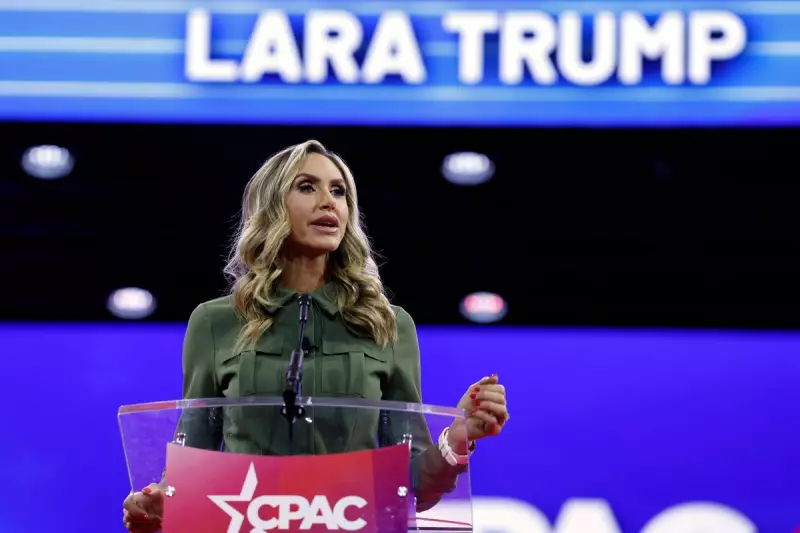
Lara Trump, the daughter-in-law of former President Donald Trump and newly appointed co-chair of the Republican National Committee, has ignited a political controversy with her recent comparison of a party speech to one of America's most watched entertainment events.
The Halftime Show Comparison That Raised Eyebrows
During her address at the Turning Point Action conference in Detroit, Mrs Trump made the surprising analogy: "Somebody asked me the other day, 'What are you going to do? You're now co-chair of the RNC. Are you going to be, like, the halftime show at the RNC?' And I said, 'Yeah, kind of.'"
The comparison immediately drew criticism from political opponents and commentators who questioned the appropriateness of equating serious political discourse with entertainment spectacle.
Democrats Quick to Criticise
Democratic National Committee spokesperson Addy Toevlin didn't hold back in her response, stating: "If the RNC wants to be the halftime show at the MAGA circus, they can be our guest."
She further emphasised what she sees as the Republican party's priorities, adding: "While Democrats are talking about the issues and building a winning campaign, Republicans are focused on being entertainers for an extreme base."
A New Role in Republican Leadership
The controversy comes at a significant moment in Lara Trump's political career. Earlier this year, she was elected as co-chair of the Republican National Committee, a position that places her at the heart of the party's strategic operations and fundraising efforts.
Her appointment marked a consolidation of Trump family influence within the Republican party apparatus, raising questions about the direction of the organisation ahead of crucial elections.
The Broader Context: Politics as Entertainment
This incident highlights the ongoing blurring of lines between political communication and entertainment in modern American politics. The comparison to a Super Bowl halftime show—known for its high-production values and celebrity performances—reflects a broader trend where political messaging increasingly adopts the tactics and aesthetics of entertainment media.
Critics argue this trend risks undermining substantive political debate, while supporters suggest it helps engage broader audiences in the political process.
As the 2024 election cycle intensifies, the incident raises important questions about how political parties should communicate their messages and whether entertainment-driven approaches serve democratic discourse or detract from it.





